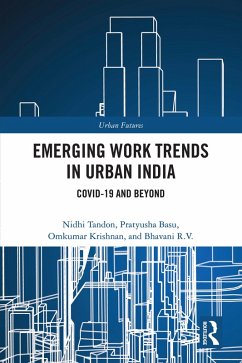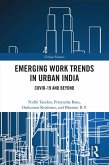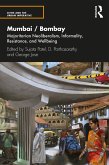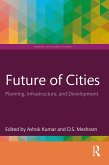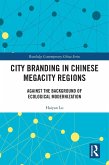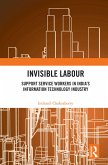This book will interest students, teachers, and researchers of urban studies, urban sociology, sociology of work, labour studies, human and urban geography, economic geography, urban economics, development studies, urban development and planning, public policy, regional planning, politics of urban development, social and cultural change, urban sustainability, environmental studies, management studies, South Asian Studies, and Global South studies. It will also be useful to policymakers, non-governmental organizations, activists, and those interested in India and the future of the global economy.
Dieser Download kann aus rechtlichen Gründen nur mit Rechnungsadresse in A, B, BG, CY, CZ, D, DK, EW, E, FIN, F, GR, HR, H, IRL, I, LT, L, LR, M, NL, PL, P, R, S, SLO, SK ausgeliefert werden.
Ranjeet S Ajmani, Chief Executive Officer, PlasmaGen BioSciences, Bangalore, India
"A much-needed recipe to learn the changing trends of work towards automation. It spans the entire gamut of manufacturing to services and the need for digitalisation while addressing the socio-political and cultural barriers."
Bhavik Kumar, Founder & CEO, Medibox, India
"The Covid-19 pandemic has intersected with ongoing digital technology led economic transformations to bring about serious disruptions to work, livelihoods, incomes, and inequalities across rural and urban India. This book offers a comprehensive and inter-disciplinary overview of the precarity, fissures, and exclusions brought about by these ongoing changes. Focusing on the formal and informal sectors, on issues related to skills, gender nature of impacts, and rural-urban divides, and the "the digitalisation of the urban", the volume thoroughly analyses impacts of technology on work and work force to yield significant policy recommendations that address the future of work, and the way forward for reducing inequalities."
D. Parthasarathy, Professor, Department of Humanities and Social Sciences, Indian Institute of Technology Bombay, Mumbai, India

